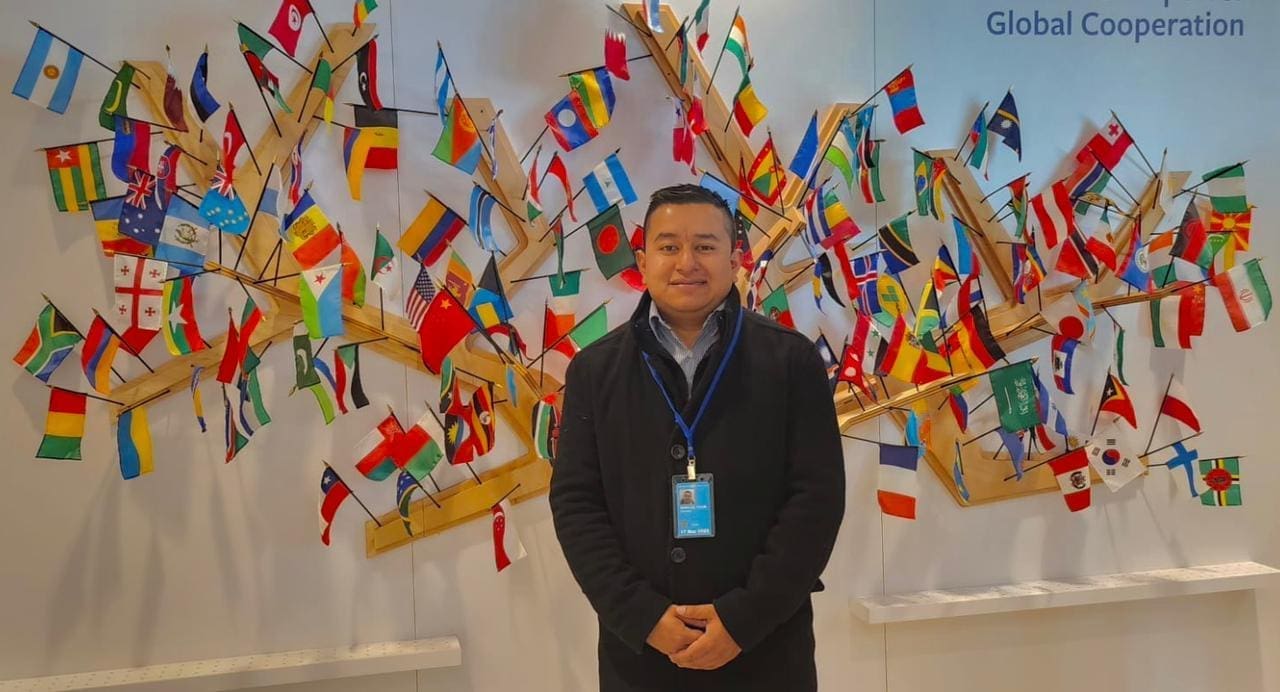In March, Alexander was invited to speak at the United Nations 67th Session of the Commission on the Status of Women at the United Nations Headquarters in New York City. He presented about a women’s digital empowerment project he helped implement in Guatemala prior to joining KIND that addressed one of the key factors that cause girls and women to migrate: gender-based violence. In an interview, Alexander, who is trained as a social worker, explained that migration is one of the most critical social problems faced by the Mayan population in the Quiché region—not only migration to the United States but also internal migration within Guatemala. Over half of the population that migrates is Indigenous and female, and often fleeing violence.
The goal of the project was to help prevent and eradicate violence against girls and women during the COVID-19 pandemic and respond to the needs of the most marginalized among them, recognizing the increased risk of violence of Mayan women and girls, women and girls with disabilities, older women, migrant women, and girls. Implemented by the Ixmukane Quiché Association, together with the FOKUS/Norwegian Women and Development Forum, the project helped Mayan girls and women know their individual and collective rights, especially the right to live a life free of all forms of violence.
In the first stage of the project, rural women were trained in digital education and helped install information technology centers in their communities. The centers provided training in technology and created a space for women to gather, learn, share information, and raise awareness to denaturalize violence, early and forced marriages, and teenage pregnancies. The goal was to change social norms concerning gender and empower women to use these digital technologies. The training, together with the information technology centers, improved Mayan girls and women’s access to essential services during the pandemic and facilitated the provision of legal, medical, psychological, and social care for female survivors of violence in the communities covered by the project. The project also provided a safe method through which women and girls could report incidents of violence to police and government officials at both the national and local community level.
The project was groundbreaking and became a model because despite the immobility due to COVID-19, Alexander and his colleagues found ways to implement the project—providing legal information, offering psychological and therapeutic care, and even legal assistance through digital platforms such as Zoom, Google Meets and WhatsApp.
Alexander has brought vast expertise to KIND and we are grateful for his contributions both at KIND and more broadly in supporting the rights of and creating a better present and future for girls and women in Guatemala. Learn more about Alexander and his work here.

